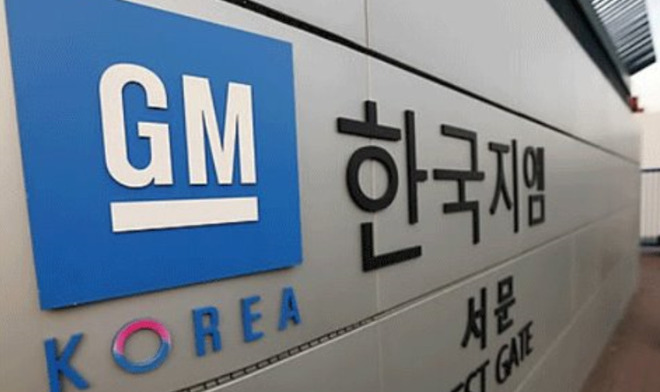 |
|
GM Korea
|
Marginal profitability increase and lack of objective figures for decision further feed controversy
The Korean Development Bank (KDB), which had been blocking GM Korea’s spinoff plan, has pivoted to approval of the plan, claiming that the agreement will lead to improved profitability, but the actual boost in operating profit turns out to be around 60 billion won (US$53.1 million) a year. Considering that GM Korea had 10.8 trillion won (US$9.56 billion) in sales last year with operating losses of 855.2 billion won (US$757.6 million), this is a marginal increase in profitability. While the improved profitability was not the only factor behind the KDB’s decision to approve the spin-off, hardly any objective figures that could shed light on the pros and cons of the agreement have been made public, leading to criticism that this agreement was made blindly. “What we’ve learned from the KDB and other parties is that splitting GM Korea into a production unit and an R&D unit and revising the technical contract has improved profitability by 60 billion won (US$53.1 million) across the two units. I suppose that’s better than no improvement at all, but it doesn’t seem very large in scale. Since the agreement about normalizing operations at GM Korea involves taxpayers’ money, its pros and cons ought to be reviewed by the National Assembly, but there’s far too little transparency here,” said an official from the National Assembly’s National Policy Committee on Dec. 19. The KDB made its announcement on Dec. 18, immediately after GM Korea’s corporate spinoff motion passed during an extraordinary meeting of stockholders. “Our review [of the spinoff plan] shows that improved profitability can be expected. We also expect an increase in corporate value, an improvement of GM Korea’s debt-to-equity ratio, and financial stabilization. We regard this as being due to the conditions we insisted on being included during our negotiations about revising the technical contract,” the KDB said. But the KDB has not released any figures or other evidence sufficient to substantiate its claims. “Since these were confidential negotiations, I have to be vague about the figures and can’t get into the specifics,” KDB Chairman Lee Dong-gull said during a meeting with reporters. When the KDB and a professional organization working with it reviewed the overall effect of the spinoff and the revised technical contract, Lee said, they concluded that the pros outweighed the cons, but the figures that provided the basis for their conclusion cannot be revealed because of the relationship with GM. But there has also been considerable skepticism about the benefits of the agreement that the KDB announced in lieu of related figures (such as the increase in operating profits and corporate value and the improvement of the debt-to-equity ratio), with critics arguing that the KDB has basically exaggerated these benefits. The KDB bragged that authorizing the spinoff would enable South Korea to be designated as a “central R&D base” for sub-compact sports utility vehicles (SUV) and crossover utility vehicles (CUV). The KDB explained that it had coined the term “central R&D base” itself, since it couldn’t make public the internal term GM uses for the base. In addition, the KDB said that the R&D work promised by the company during the May negotiations had only applied to mid-sized SUV models but that CUV models were added during the latest round of negotiations. But the GM Korea labor union said that the GM headquarters had already eliminated the base concept several years ago. Furthermore, the union said, the R&D work on CUV models that has supposedly been newly assigned to Korea had been essentially confirmed several months ago and was something about which union members were already aware. “Considering what GM has done at its branches in various countries and the low trust in the company, there are too many aspects of the results of this agreement that lack transparency. The government and the KDB claim to be acting in good faith for the national interest, but they need to make it possible for the situation to be assessed with some degree of objectivity,” said another member of the National Assembly’s National Policy Committee. By Jung Se-ra, staff reporter Please direct comments or questions to [english@hani.co.kr]






